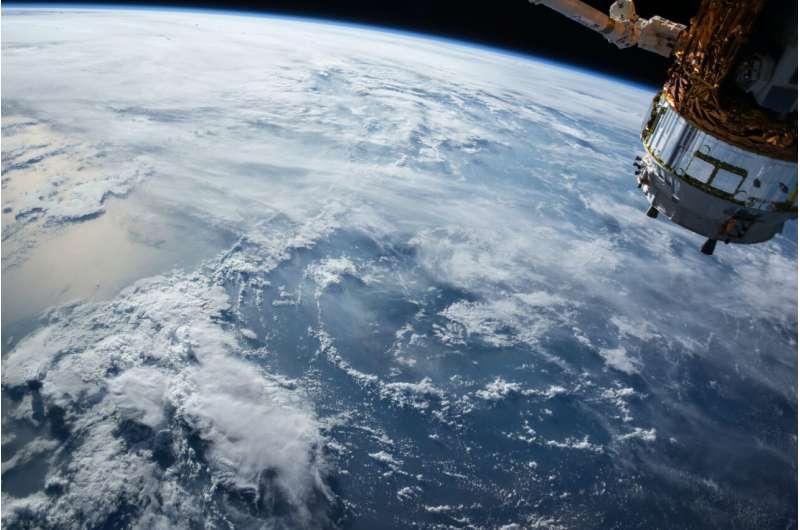
Satellites are the invisible backbone of modern life. They guide airplanes, help us find our way with GPS, deliver TV and the internet, and even help emergency services respond to disasters. But a new kind of computer—quantum computers—could put all of this at risk.
Quantum computers are not just faster versions of today’s computers. They work in a completely different way, using the peculiar rules of quantum physics. While they have not yet reached their full capabilities, quantum computers are expected to be game-changing provided that the technological hurdles can be overcome.
For example, they are expected to be able to solve certain mathematical problems that would take classical computers millions of years. In some cases, quantum computers could solve such difficult problems in just seconds or minutes.
It’s very difficult to predict exactly when practical quantum computers will become available. However, progress is being made both in the design of more powerful quantum processors and in overcoming other hurdles to their development.
The new capabilities presented by quantum computers could help push forward areas such as science and medicine. For example, they could carry out the complex simulations needed to design new materials and more effective drugs. They could also improve our simulations of Earth’s future climate.
However, there’s a catch: quantum computers could also break the codes that keep our digital world safe.
Experts around the world are working urgently to develop new kinds of digital “locks” that can’t be cracked by quantum computers—an area known as “post-quantum cryptography”. These new codes are being tested and approved by international bodies, while governments are starting to plan how to upgrade everything from satellites to bank systems.
The digital locks that protect satellite signals, bank accounts and private messages are based on mathematical puzzles that regular computers can’t solve quickly. Quantum computers, however, would be able to crack these puzzles with ease.
You might think that satellites are safe because they’re far away and hard to reach. But as the technology required to attack them becomes cheaper and more widely available, satellites are becoming targets for hackers and hostile governments. Today, it’s possible for skilled attackers to intercept satellite signals or try to send fake commands.
Staying ahead of the curve
Most satellites are designed to last for decades. This means the security systems we put in place now need to be strong enough to withstand not just today’s threats but tomorrow’s as well—including the threat from quantum computers.
In the UK, the National Cyber Security Center has published a roadmap for moving to quantum-safe security. It has set a date of 2035 by which organizations should aim to migrate all their systems to post-quantum cryptography—the new digital codes that should protect against hacking by quantum computers.
The message is clear: both private- and public-sector organizations need to start preparing now, so that by the time quantum computers are ready, our most important systems—including satellites—are already protected.
Updating a satellite’s security isn’t as simple as updating your phone’s software. Once a satellite is in orbit, it’s very hard—sometimes impossible—to change its systems. That’s why new satellites being designed today must use quantum-resistant security from the start.
It’s also necessary to design these systems so they can work efficiently across more than one satellite, because some spacecraft are designed to collaborate with each other in what are known as “swarms.”
If we don’t act now, the data sent to and from satellites could one day be read or even tampered with by anyone with a powerful enough quantum computer. That could mean anything from disrupted GPS signals to attacks on emergency communications or threats to national security.
No country can solve this problem alone. It will take scientists, engineers, governments and international organizations working together to make sure our digital infrastructure is ready for the quantum age.
The good news? The world is already moving in this direction. By building in the protections against quantum computers now, satellites that connect and protect us can be secured—no matter what the future brings.
This article is republished from The Conversation under a Creative Commons license. Read the original article.![]()
Citation:
Quantum computers could crack the security codes used by satellites (2025, May 12)
retrieved 12 May 2025
from
This document is subject to copyright. Apart from any fair dealing for the purpose of private study or research, no
part may be reproduced without the written permission. The content is provided for information purposes only.













Leave a comment